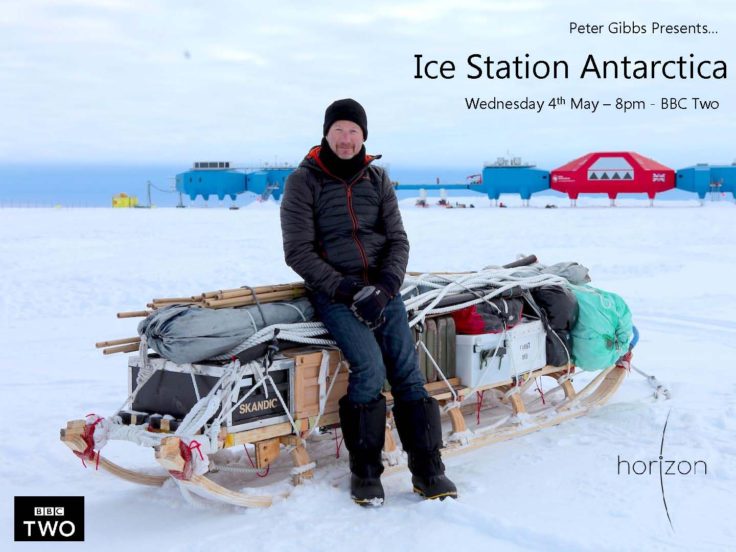Documentary follows BBC’s Peter Gibbs back to the ice
Horizon documentary ‘Ice Station Antarctica’ broadcasts on 10 May @ 23:15 on BBC TWO
In 1980, a meteorologist straight out of university spent an incredible two and a half years living and working for British Antarctic Survey at Halley Research Station in Antarctica. It was a defining moment that changed his life forever. This year, some 36 years later, that same man BBC weather presenter Peter Gibbs, made an emotional return to Halley.
BBC Horizon has documented every step of Peter’s trip. It charts him travelling over 3000 miles on the RRS Ernest Shackleton from Cape Town across the wild waves of the Southern Ocean to where the sea turns into ice and icebergs become normal scenery. He spends time on the bridge with the ship’s Captain John Harper and even tries his hand at navigating.

After 12 days, it’s an emotional moment as Peter steps back on to the ice. He spends over a week living and working with the researchers and support staff at Halley and gets the latest from scientists on how they collect data and run experiments to look at long-term change of the atmosphere, climate and space phenomena. It’s here that data revealed a hole in the ozone layer, which led to an international ban on CFCs. He also catches up with space scientist Richard Horne to find out how unique Halley’s position is for collecting information on radiomagnetic waves and killer electrons (more commonly known as space storms which manifest with auroral displays), which in turn can better our understanding of how to protect satellites which underpin our everyday lives.
Peter talks to the station leader Jess Walkup about living in such a remote location, the field guides Matt Etheridge and Al Davies on how they keep the workforce safe and the chef Victoria Stone about the challenges of cooking for up to 60 staff when there is limited fresh produce. He also tries his hand at docking a space craft as part of a project to understand the effects for future space flight.
BBC Horizon ‘Ice Station Antarctica’: http://www.bbc.co.uk/programmes/b079s24p